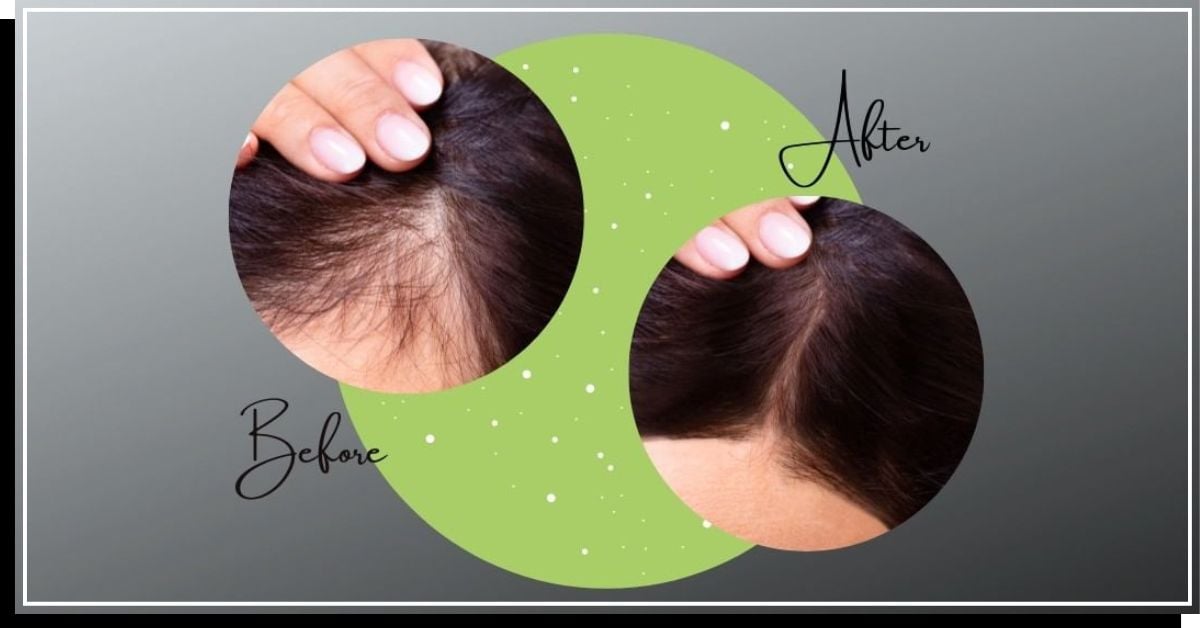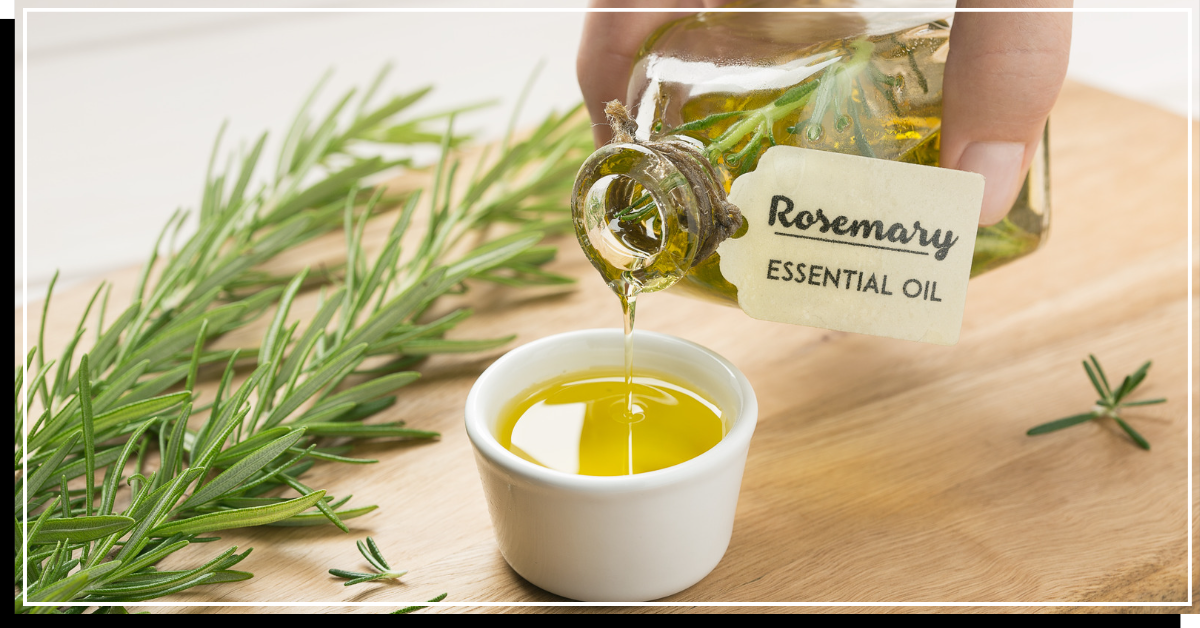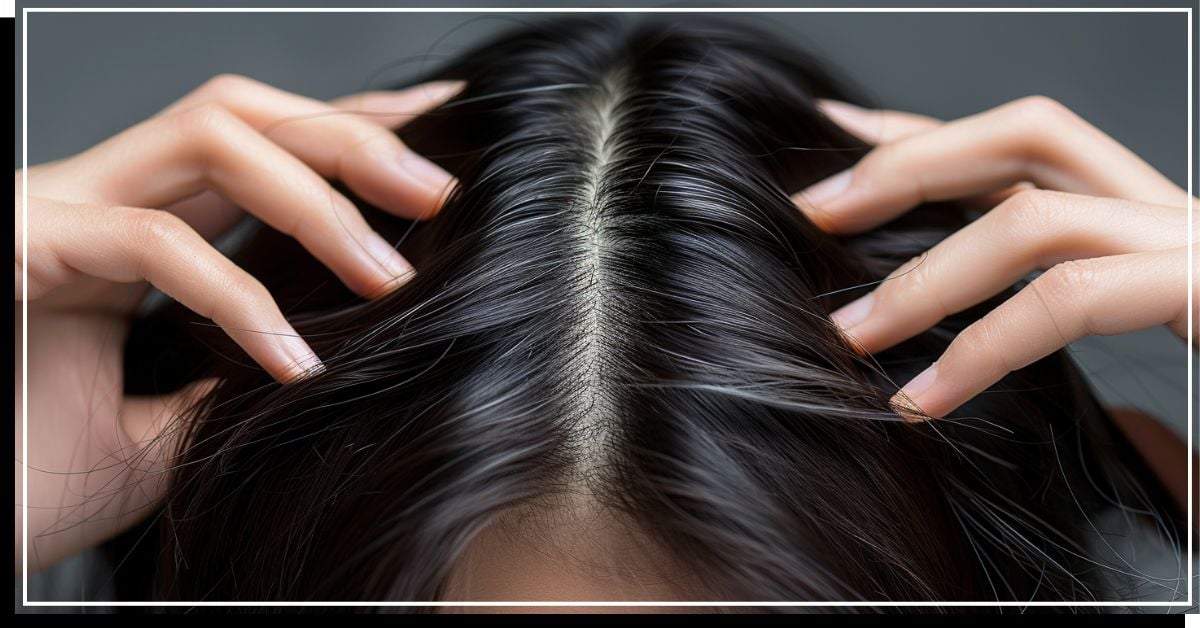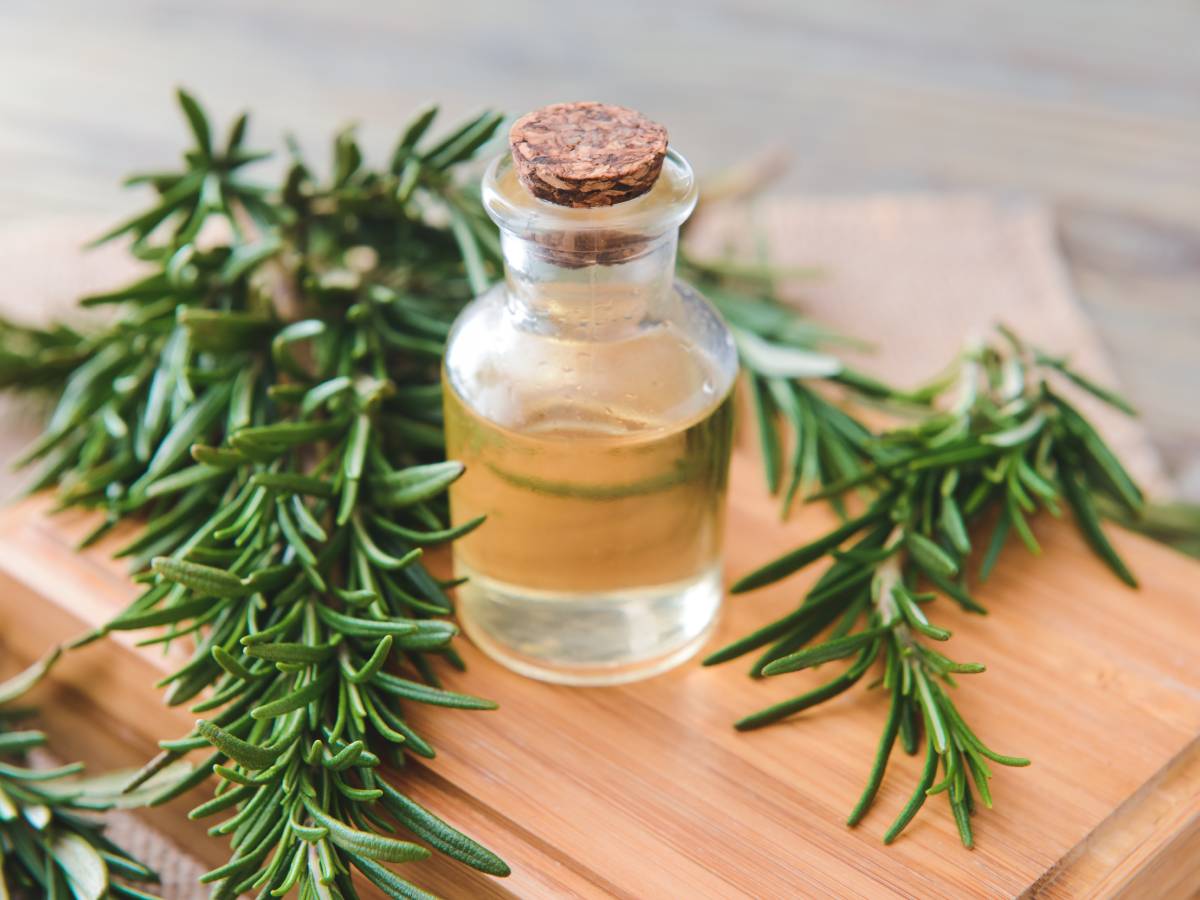Rosemary water hair treatments are everywhere lately. They’re currently hailed for restoring dry, damaged strands back to their former beauty. It’s no surprise once you consider rosemary’s moisturizing and anti-inflammatory effects. And best of all, rosemary water is easy to make and use at home.
Whipping up a batch of this miracle hair treatment takes only a few minutes! You should be able to see immediate benefits in the health and luster of your locks.
I also spoke with Camille Hebert, hair designer at Re.Growth Holistic Salon in Queen Creek, AZ. I asked her to shed some light on the potential benefits of rosemary water hair treatments.
She told me, “It’s possible using rosemary water alone would be beneficial. You’re using the product in its natural state at a fuller strength, as opposed to a professional product made with other ingredients. These may dilute the strength and therefore not work as well, or take longer to see results.”
What’s not to love about a DIY hair treatment that might work better than a professional product?
In this guide, you’ll be able to discover more about the following:
- What is Rosemary Water? Rosemary water is a simple treatment you can whip up at home.
- Benefits of Rosemary Water for Hair. I’ll dive deep into the proven benefits.
- Potential Drawbacks. I’ll also cover potential issues to look out for.
- How Do You Make Rosemary Water? Making a rosemary water hair treatment couldn’t be easier, and I’ll tell you how.
- How to Use Rosemary Water. I’ll also walk you through how to apply it, step by step.
- Hair Type Considerations. Certain hair types will see more of an effect than others.
- FAQs About Rosemary Water Hair Treatments. Whatever lingering questions you have, I’ve got answers.
What Is Rosemary Water?
The simplicity of a rosemary hair rinse is part of what makes it so amazing! Its name tells you all you need to know about the ingredients. Rosemary water is what you get from cooking the herb in distilled water. You’ll do so at a low temperature for several hours, and remove any leftover solids.
It’s very much like what happens when you make tea. The herb breaks down and infuses the water with its health-boosting properties.
Instead of using fresh rosemary, you can also find rosemary essential oil. This makes the process of creating your homemade hair rinse even easier.
Benefits of Rosemary Water for Hair

Promotes hair growth and prevents hair loss. Throughout life, people go through changes. These include hormonal fluctuations that can cause hair to fall out or stop growing as fast. Frequent rosemary water hair rinses can help offset these changes and restore balance.
Addresses postpartum hair thinning. Many women notice thinning hair during the postpartum period. While hair loss is usually temporary, it is still devastating when it happens. The simplicity of this hair rinse makes it easy for a busy mom to mix up and apply.
Counteracts male pattern baldness. Men can also benefit from using rosemary water. Studies show it can promote regrowth of hair loss caused by testosterone fluctuations (source).
Prevents and relieves the symptoms of common scalp problems. The benefits of rosemary water also include its antifungal properties! These can help with dandruff and other common scalp conditions.
Potential Drawbacks
Most people can use rosemary water hair rinses without any noticeable side effects.
There’s always a small risk that someone who is sensitive to the herb might develop a reaction. This could include rashes or digestive distress if they accidentally ingest the solution.
Since the hair rinse is a topical treatment, the risk of having any type of serious reaction is low. It’s true that certain people might experience scalp itchiness with the first use. But research shows rosemary tends to cause less itching than prescription-strength hair loss treatments. (source)
The biggest issue relates to pregnancy and nursing. Topical applications of rosemary-infused products aren’t safe during pregnancy or breastfeeding.
Rosemary can cause early contractions– even in your first trimester (source). When it comes to the risks of rosemary and nursing, scientists need more data before they can reach a solid conclusion. Ask your doctor if rosemary water hair treatments are safe for you while nursing. (source)
How Do You Make Rosemary Water?
Making rosemary water is so easy that you’ll likely wonder why you haven’t been doing it all your life. To get started, you’ll first want to decide if you want to use fresh herbs or an essential oil.
To make rosemary water using fresh herbs, you’ll need to complete the following steps.
- Combine fresh or dried leaves with 2-3 cups of distilled water in a pan.
- Bring the solution to a rolling boil.
- Lower the temperature to a simmer.
- Allow the solution to simmer for several hours.
- Let the rosemary water cool completely before applying it to your hair.
To make rosemary water with essential oil, you’ll follow this simple procedure.
- Bring two to three cups of water in a pan to a boil.
- Place 10 to 15 drops of rosemary oil into the water.
- Mix the solution and allow it to cool.
Now, it’s also important to seek out organic rosemary whenever possible. I asked Camille for her take on why this is crucial. She said, “Organic products are important to seek out because they have a high standard of being grown in nutrient-rich soil. They aren’t dependent on chemicals to be grown.
Our skin is the biggest organ we have, and it absorbs whatever you put on it. Products grown and produced with organic standards will be less harmful on your toxic overload.
These are toxins that build up in the body over time. We’re constantly exposed to them with each product we use and in the polluted air we breathe.” Basically, when you put good in, you get good out!
How to Use Rosemary Water

With your solution all prepped and ready to go, you’re set to begin using it to nourish your tresses. You’ve got several options for using rosemary water to choose from based upon your goals.
Rosemary Water Treatment
When: Several times a week for people with scalp conditions, such as dandruff. Once a week for maintaining healthy hair.
Where: Massage the solution into your scalp to work the solution into your hair follicle. This is where it can offer the deepest anti-inflammatory benefits (source). You also have the option of starting midshaft if you aren’t in need of a scalp treatment.
How:
- Start by placing the rosemary water in a spray bottle or mix it with shampoo.
- Spritz or massage the rosemary water all over your hair and scalp.
- Massage the solution into your scalp and strands.
- Allow to sit for one to three minutes before rinsing it out.
Rosemary Oil Blend
When: Once a week treatments will work for most hair types. You might throw in an extra session if your hair is seriously damaged.
Where: Carrier oils can make your scalp look greasy. So, apply the treatment starting about mid-shaft.
How:
- Start with your base solution of rosemary water. Then, choose your carrier oil to help it penetrate deeper into your strands. Almond and argan oil are popular add-ins that further enhance hair health.
- Take your dry or wet hair and divide it into sections.
- Apply the rosemary oil blend to your hair, like you would with any conditioning treatment.
- Let it soak into your hair for three to five minutes.
- Rinse the treatment out completely.
Rosemary and Apple Cider Vinegar Rinse
When: Several times a week is fine for most hair types. Once a week, if your hair is prone to dryness.
Where: This is another treatment that you can use as a rinse in the shower. It can be applied from your scalp down to the ends of your tresses.
How:
- Mix your rosemary hair treatment with Bragg’s Organic Apple Cider in a spray or squirt bottle.
- Wash your hair with your normal shampoo and rinse.
- Gently squeeze out any excess water using a soft towel.
- Apply the rosemary and apple cider vinegar rinse to your hair.
- Use a wide-tooth comb to evenly distribute the solution through your strands.
- Allow it to sit for five to seven minutes.
- Rinse with cool water.
Hair Type Considerations
Anyone can benefit from using rosemary water hair treatments! But certain hair types and conditions will notice greater results.
Knowing how your hair type works with rosemary can help you choose the best application for your needs.
Thin Hair
Hair loss is more noticeable when you have thin hair. So, you might worry about using a hair treatment that leaves your hair greasy.
If your hair is on the thin side, then try using the apple cider vinegar rinse. It’s the perfect way to encourage hair growth without weighing your strands down.
Dandruff Issues

Dealing with an itchy, flaky scalp can really bring you down. Current research shows rosemary oil can help reduce dandruff (source).
You can mix your rosemary water with Bumble and Bumble Sunday Shampoo once a week. This will help soothe your inflamed scalp without changing your hair care routine.
Allergies or Sensitive Skin
Serious allergies to rosemary are rare, but they can happen. If you’re allergic to rosemary or have an unusual reaction to your rinse, consider an alternative.
Cliganic Organic Argan Oil provides similar benefits as rosemary oil. Argan oil is well-known for providing moisturizing and strengthening effects. Over time, this can reduce hair loss and breakage. You can use this product as often as you would a rosemary hair rinse.
Hair Loss Medications
If you’re currently using any other type of hair loss treatment, then it’s best to avoid using rosemary oil. This rule applies whether you use a medicated hair mask, shampoo or oral supplement. Mixing medications can cause adverse reactions.
But if you’re considering starting a hair loss medication, you may want to try a rosemary water hair rinse first. Camille told me, “I would recommend Rosemary oil or water first, because it is what is closest to nature.
It is anti-inflammatory, and naturally kills fungi and bacteria growth. It’s always good to see what you can tolerate with an easy patch test. OTC products that have similar benefits are a good option too. But many people with allergies and sensitive skin have side effects from these products as well.
It’s always a good idea to read ingredients for anything you may be sensitive to.” So, you should still do a patch test before doing a full rosemary water hair rinse.
Pregnancy
The hormonal changes that go with pregnancy and childbirth can impact your hair. Some people develop thicker locks in early pregnancy. But then their hair starts thinning after delivery.
You may be thinking of doing rosemary water hair treatments during your pregnancy. And I get it– of course you want to counteract hair loss ASAP.
But as I said earlier, rosemary can cause contractions as early as your first trimester. Your doctor can provide more info on the risks and what to avoid.
Rosemary Water Hair and Scalp Treatment FAQs
Can you use rosemary water on a daily basis?
You absolutely can! Rosemary water is gentle enough to use as part of your normal daily hair care routine.
Does rosemary water darken your hair?
Rosemary water does not darken hair by itself. Your hair might look slightly darker if you mix it with heavy carrier oil, much like it does when it’s wet.
How long before I see the effects of using rosemary water?
The moisturizing benefits of rosemary water are evident immediately. Hair regrowth and improvements in scalp conditions can take several weeks or more.
Will using rosemary water change my hair color?
Your hair color should not change from using rosemary water. The solution may have a slightly green tint, but doesn’t stain or dye your strands.
Does rosemary water help with postpartum hair loss?
Rosemary water can help you to regrow the hair you lose during the postpartum period. Since it’s safe for nursing mothers, you can use it as an alternative to medicated treatments.
Do you put rosemary water on wet or dry hair?
You can apply a rosemary water hair treatment to wet or dry hair— either option works. Applying on dry hair allows more of the solution to penetrate your hair strands. Applying on wet hair might be preferable if you’re using it with your normal shampoo.
Can you freeze rosemary water for hair?
You can freeze rosemary water in small batches that you can use later. It lasts for up to 7 days in the refrigerator as well.
Can rosemary water damage hair?
No, you shouldn’t notice any damaging effects from using rosemary water hair treatments. If your hair feels greasy or dry afterwards, try adding the water to a carrier oil or apple cider vinegar. The added nutrients should help you achieve the desired effects.
